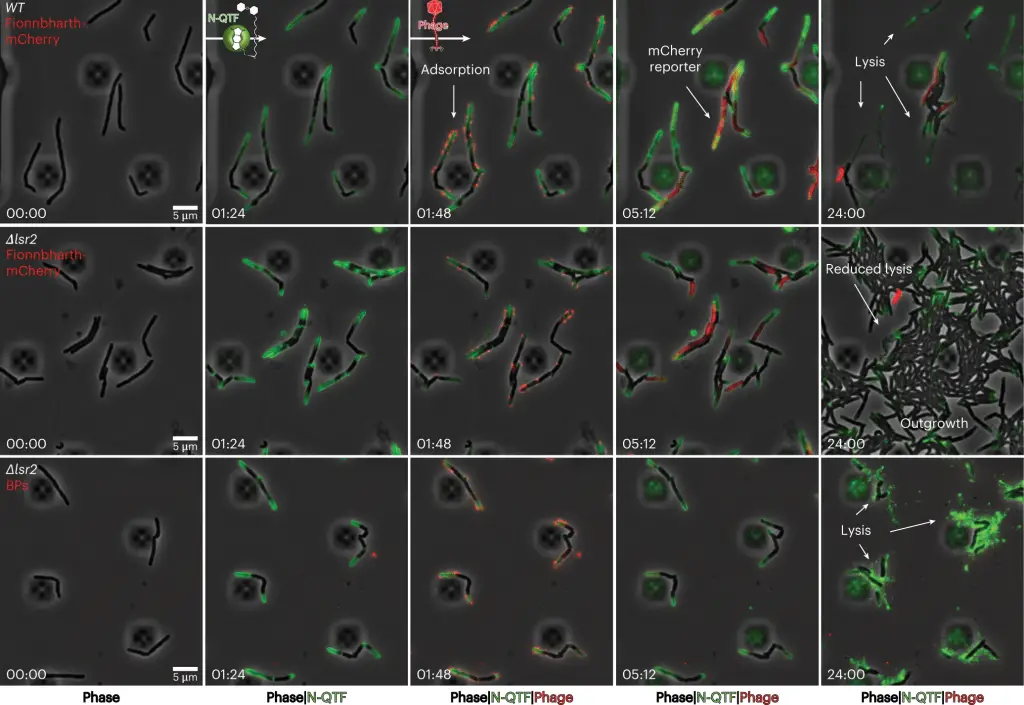Researchers at the Institute of Medical Microbiology, Virology, and Hygiene and their colleagues from the Core Facility Proteome Analysis at University Medicine Rostock, Germany, have unveiled a groundbreaking approach to combat Streptococcus pneumoniae (S. pneumoniae) infections using synthetic mRNA. Their study (now available as pre-proof), led by the team demonstrates the successful delivery of mRNA encoding the Cpl-1 bacteriophage-endolysin into human cells, resulting in potent antimicrobial activity against S. pneumoniae.
Endolysins, enzymes produced by bacteriophages, have long been recognised for their ability to kill bacteria effectively. However, conventional endolysin therapy faces challenges such as organ targeting and bioavailability. The team hypothesised that mRNA-based delivery could overcome these limitations, enabling precise targeting of S. pneumoniae inside human cells.
While the concept of using mRNA to express proteins is not entirely new, it experienced a significant resurgence in interest following the development of mRNA-based COVID-19 vaccines. mRNA technology has been studied for decades, initially explored as a potential tool for gene therapy and vaccine development. However, it wasn’t until the COVID-19 pandemic that mRNA vaccines gained widespread attention and validation. The remarkable success of mRNA vaccines, such as those developed by Pfizer-BioNTech and Moderna, in generating robust immune responses against SARS-CoV-2 demonstrated the versatility, speed, and efficacy of this approach.
The mRNA vaccines provided a groundbreaking solution to the urgent global need for effective COVID-19 vaccines, marking a turning point in the field of vaccinology. As a result, there has been renewed enthusiasm and investment in mRNA-based therapies and vaccines for a wide range of diseases beyond COVID-19, including cancer, infectious diseases, and genetic disorders. The COVID-19 pandemic served as a catalyst for accelerating the development and deployment of mRNA technology, paving the way for a new era in medicine and biotechnology.
The researchers of this current study found that synthetic mRNA introduced into three human cell lines (HEK293T, A549, HepG2 cells) facilitated the expression and cytosolic accumulation of the Cpl-1 endolysin, effectively combating S. pneumoniae. By incorporating a human lysozyme signal peptide sequence, they were able to guide the endolysin to the endoplasmic reticulum for secretion, further enhancing its pneumococcal-killing effect.
Furthermore, the study highlights the potential of mRNA-based therapy for treating pneumococcal sepsis by targeting splenic macrophages, which serve as reservoirs for S. pneumoniae. While no direct evidence of intracellular killing was provided in the study, the researchers emphasize the importance of investigating this avenue further to prevent fulminant forms of pneumococcal sepsis.
Respiratory tract infections, a common manifestation of pneumococcal disease, could also be targeted using mRNA-based therapy. The secretion of mRNA-encoded endolysins to target extracellular S. pneumoniae in the respiratory tract represents a promising strategy for epithelial decolonization and infection treatment.
Despite the success of the mRNA-based approach, challenges remain, including optimizing cell-specific parameters for efficient endolysin production and ensuring stability and viability of mRNA constructs over time. Additionally, potential post-translational modifications, such as glycosylation, need to be carefully considered to maximize therapeutic efficacy.
The implications of this research extend beyond pneumococcal disease, with potential applications against other bacterial pathogens. As antibiotic resistance continues to pose a global threat, innovative solutions like mRNA-based therapies offer hope for combatting infectious diseases. The University of Rostock has filed a patent related to this groundbreaking work, signaling the potential for future clinical applications.
Have you liked what you have just read, click here to read more related content (phage-related news) like this one and also join our community by following the phage on X(formally Twitter), Facebook, and LinkedIn page
You can get their pre-proof here: Jansson, M. K., Nguyen, D. T., Mikkat, S., Warnke, C., Janssen, M. B., Warnke, P., … & Patenge, N. (2024). Synthetic mRNA delivered to human cells leads to expression of Cpl-1 bacteriophage-endolysin with activity against Streptococcus pneumoniae. Molecular Therapy-Nucleic Acids, https://doi.org/10.1016/j.omtn.2024.102145.




